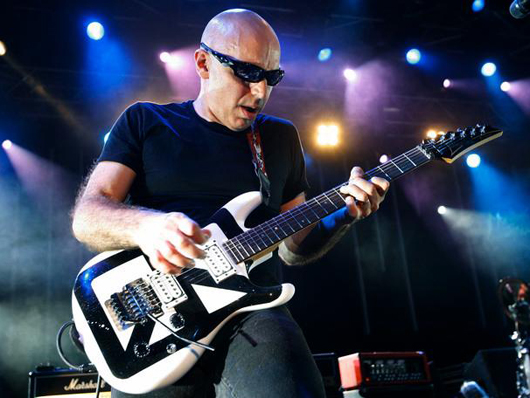
Joe Satriani
Before recently becoming one-fourth of the supergroup Chickenfoot, Joe Satriani had established himself as one of the most influential, versatile and successful rock guitarist of the past two decades.
His ability to marry astonishing technical prowess with exquisite taste can be heard on over a dozen solo releases.
Here Satch, one-time instructor to future stars (Steve Vai, Kirk Hammett), leader of the G3 guitar extravaganza, designer of both instruments and effects - you name it, he's done it - chooses the six albums that defined his career, telling MusicRadar why they stand out from the pack.
Next page: Joe's debut is a collector's item
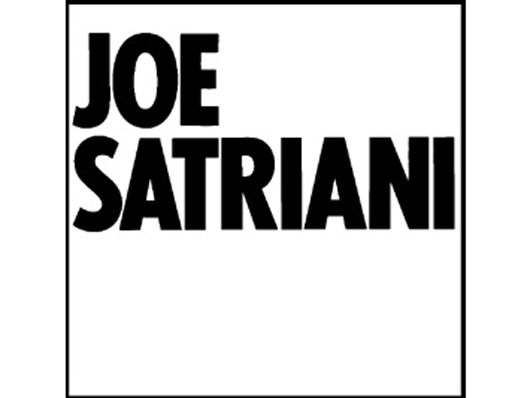
Joe Satriani (1984)
In the late '70s Joe moved from Long Island to Berkley, California. He taught guitar and played in the Greg Kihn Band. Still, he knew there was something more out there. With nowhere to go but up, he took a brave first step.
Joe Satriani says:
"What a crazy idea, to record a 12-inch EP to be played at 45rpm, comprised of material played exclusively on electric guitar, with no bass, drums or keyboards.
“When engineer Jeff Holt and I heard the Banana Mango mix back the first time, we knew we had made something special and unique. It was a new beginning for me, musically and personally.
“Pretty much broke but ecstatic, we celebrated with two dark beers and a bar of chocolate.”
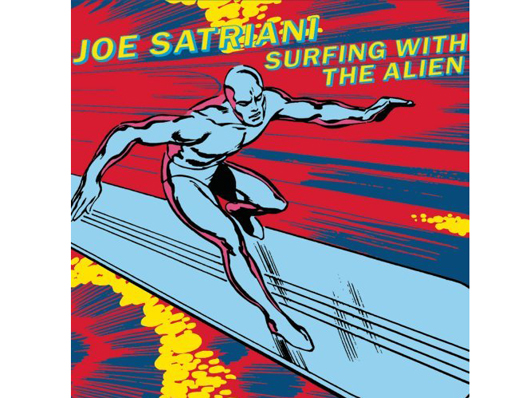
Surfing With The Alien (1987)
A year earlier, Satriani released his first full album Not Of This Earth, and a buzz was building. Good friend and former student Steve Vai talked Joe up to the media. The time was right to made a grand statement.
Joe Satriani says:
“I truly believed it would be the last record anyone would ever let me make. If it were not for the support from co-producer John Cuniberti and Relativity Records A&R man Cliff Cultreri, I would have given up before it was finished.
“Once again, it was listening back to a late night, early morning mix that changed everything. The song was Echo, and John’s mix was magical. We were downstairs at Hyde Street Studios, 4:30am, and I just kept pushing ‘play,’ over and over again.
"It was a life-changing moment. That recording showed me the way to my future."
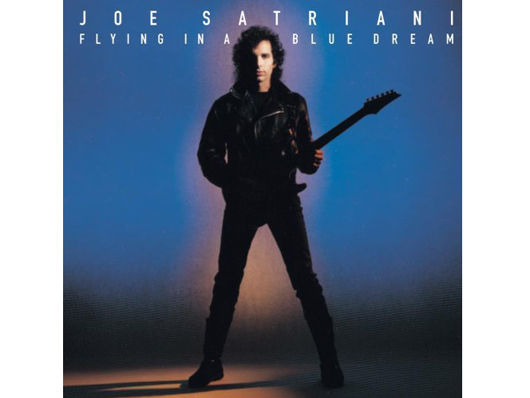
Flying In A Blue Dream (1989)
Joe had done it: Surfing With The Alien was a Top 20 smash, going Gold and eventually Platinum. He toured with Mick Jagger and was becoming a household name. But triumph mixed with tragedy on his next album...
Joe Satriani says:
“Making this record was such a challenge. First off, I was suffering from TMJ and the only way to treat it was to endure ten months of excruciating dental work.
“In addition, I was dealing with an undiagnosed case of giardia that I had picked up in Indonesia on the Mick Jagger solo tour. My face hurt, my intestines were cramping and I had lost about 10 pounds that I shouldn’t have.
"We had studio, musician and budget issues. Just as I completed the album, my father passed away. Two weeks later, my grandmother died. The day I flew to NYC for the record release party, the San Francisco Bay Area, where I live, experienced an earthquake. I couldn’t reach my wife for four days.
"1989 was rough.”
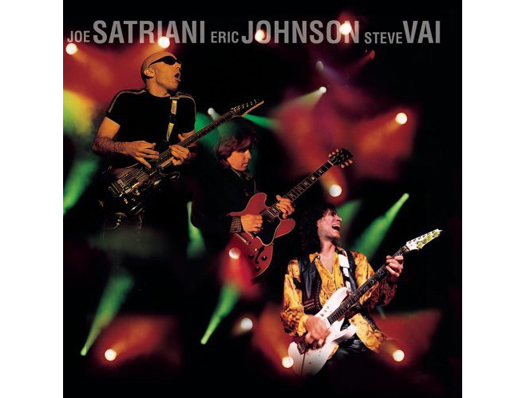
G3: Live In Concert (1997)
For years, Satriani had longed to be in a band, but nothing panned out. So he came up with perhaps the next-best-thing: a traveling roadshow featuring three guitar greats. Over the years, the lineups would change. But this was the maiden voyage.
Joe Satriani says:
“I love having an idea for something new that everyone tells you can’t be done, and shouldn’t be attempted - it just gets me more excited about pursuing it.
“It took me a full year to convince Steve, Eric and their managers that G3 was a good idea and that its time was ‘now.’ After the first show you could see a glow in everyone’s faces; they loved the challenge of it, the fun of it, the good vibes on stage, and most importantly, the energy coming from the audience.
“It took the first gig to show everyone that G3 wasn’t a competitive event. It was real musical collaboration.”
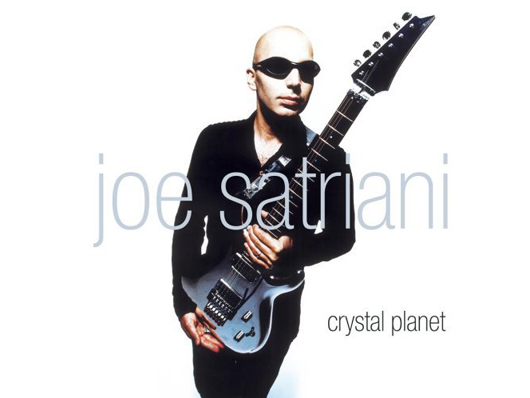
Crystal Planet (1998)
By '98, Joe was at a creative crossroads and felt the need to shake things up. The meticulous planner and arranger threw caution to the wind and came up with his most spontaneous effort to date.
Joe Satriani says:
“I didn’t make traditional demos for this CD. With a metronome and a note pad, I would sit in my studio, guitar in hand, and compose each song, unconcerned about production, or, what my bandmates’ parts would be.
"We rehearsed before we went into the studio - that was a first - and we recorded as a live band (also a first for me), with melodies and solos being recorded live on most tracks.
"I arranged the song sequence so that each track started in a higher key. It was a crazy idea I had, that ascending keys would promote continued listening, in sequence, so the album could be experienced as a whole conceptual piece."
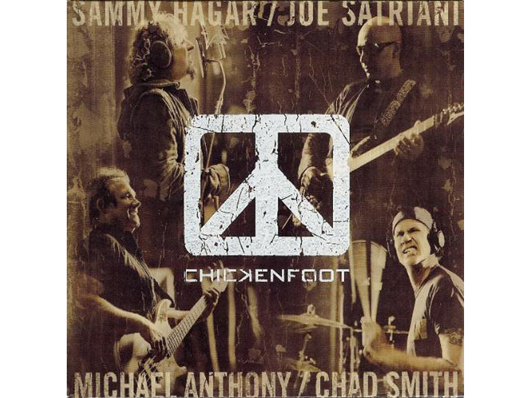
Chickenfoot (2009)
Satch had all but given up on his dream of being in a band. However, a chance invitation to sit in with Sammy Hagar, ex-Van Halen bassist Michael Anthony and Red Hot Chili Peppers drummer Chad Smith resulted in the kind of magic he'd been searching for.
Joe Satriani says:
“Sometimes, the impossible happens. When Sammy, Mike, Chad and I play together there’s a musical connection that has that one in a million feel to it. Against all odds, this band made a record, is on tour and rocks like nothing else I’ve ever been a part of.
Writing Future In The Past as a band, and recording it on the spot, all within one hour at Skywalker Studios, was such a thrill. Adding the wah-wah guitar solos during the overdub sessions a month later really brought it all home to me: this was a real band and we had made a real record.
And it was only the beginning.”
Joe is a freelance journalist who has, over the past few decades, interviewed hundreds of guitarists for Guitar World, Guitar Player, MusicRadar and Classic Rock. He is also a former editor of Guitar World, contributing writer for Guitar Aficionado and VP of A&R for Island Records. He’s an enthusiastic guitarist, but he’s nowhere near the likes of the people he interviews. Surprisingly, his skills are more suited to the drums. If you need a drummer for your Beatles tribute band, look him up.
